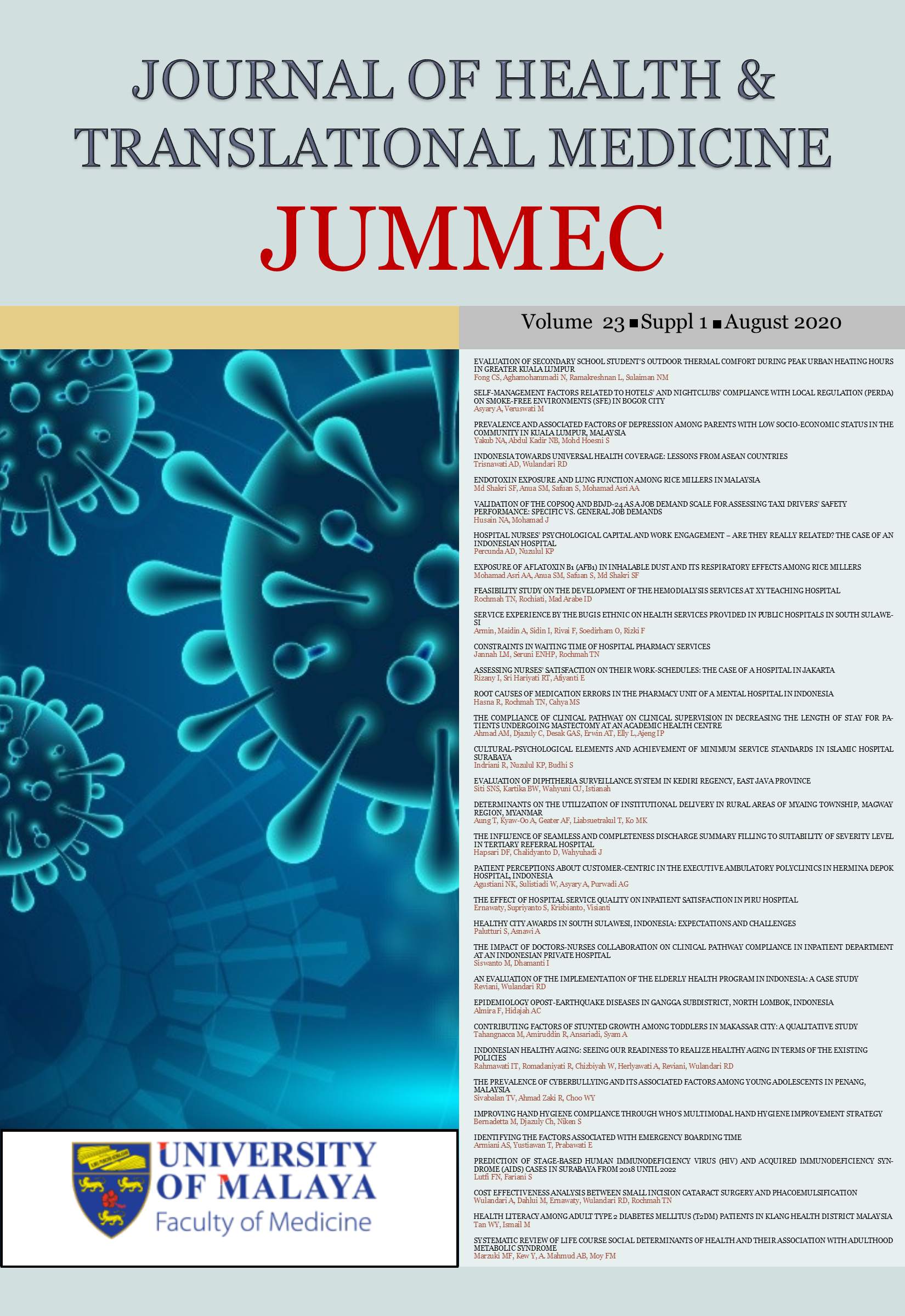PREVALENCE AND ASSOCIATED FACTORS OF DEPRESSION AMONG PARENTS WITH LOW SOCIO-ECONOMIC STATUS IN THE COMMUNITY IN KUALA LUMPUR, MALAYSIA
Keywords:
Depressive symptoms, Low SES, Parents, Depression, Mental health problemsAbstract
Background: Past research evidenced that the individuals from low socio economic status (SES) families were having a higher prevalence of mental health problems when compared to higher income families. Therefore, this study aimed to examine the prevalence of the depressive symptoms among parents by socio-demographics profile: age, number of children living in a household, marital age, and household income.
Objective: The purpose of this study also aims to examine other variables that correlate to the symptoms.
Methods: A total of 205 participants consisting of fathers and mothers from four People’s Housing Projects (PHP) around Kuala Lumpur completed a self-report questionnaire which included a demographic profile form, Beck’s Depression Inventory (BDI), Parenting Daily Hassle Scale (PDHS) and Social Support Scale were used in order to measure all the variables that possibly added to the depressive symptoms among the parents. Correlation analyses were used to assess the relative significance of all the variables tested in this study.
Results: 40.4% of the respondents reported a mild depression whilst another 4.4% reported a moderate level of depressive symptoms and 2.4% of them reported a severe level. The majority of the respondents reported a moderate to a high level of daily hassles and reported that their spouses were their supporters in any difficult situation. From the correlation analysis, only three variables; the household income, parenting daily hassles score and social support found the significance correlation to the depressive symptoms among the low SES parents in Kuala Lumpur.
Conclusion: The prevalence of the depressive symptoms among the low SES and the correlated variables were determined. Further research on intervention to educate parents is needed to react to the present findings and to reduce the transmission risk to the children as well as to develop a healthy nation.
Downloads
Downloads
Published
Issue
Section
License
All authors agree that the article, if editorially accepted for publication, shall be licensed under the Creative Commons Attribution License 4.0 to allow others to freely access, copy and use research provided the author is correctly attributed, unless otherwise stated. All articles are available online without charge or other barriers to access. However, anyone wishing to reproduce large quantities of an article (250+) should inform the publisher. Any opinion expressed in the articles are those of the authors and do not reflect that of the University of Malaya, 50603 Kuala Lumpur, Malaysia.


